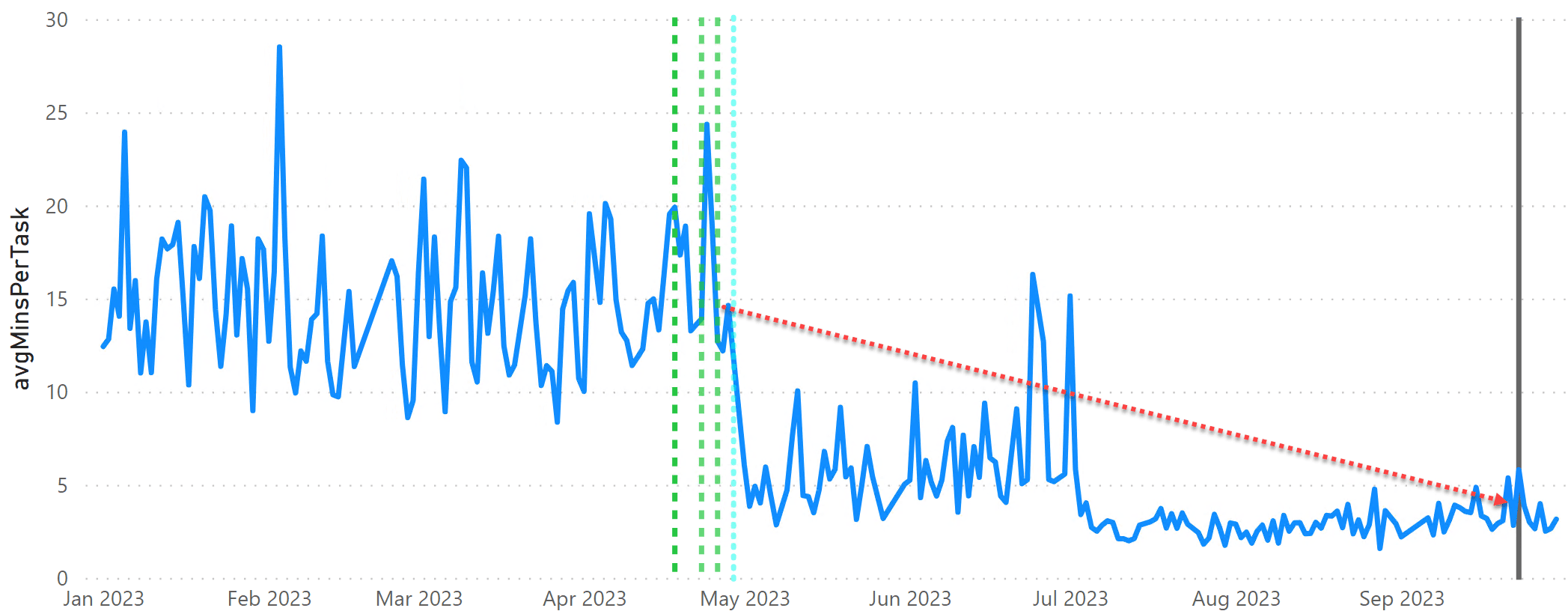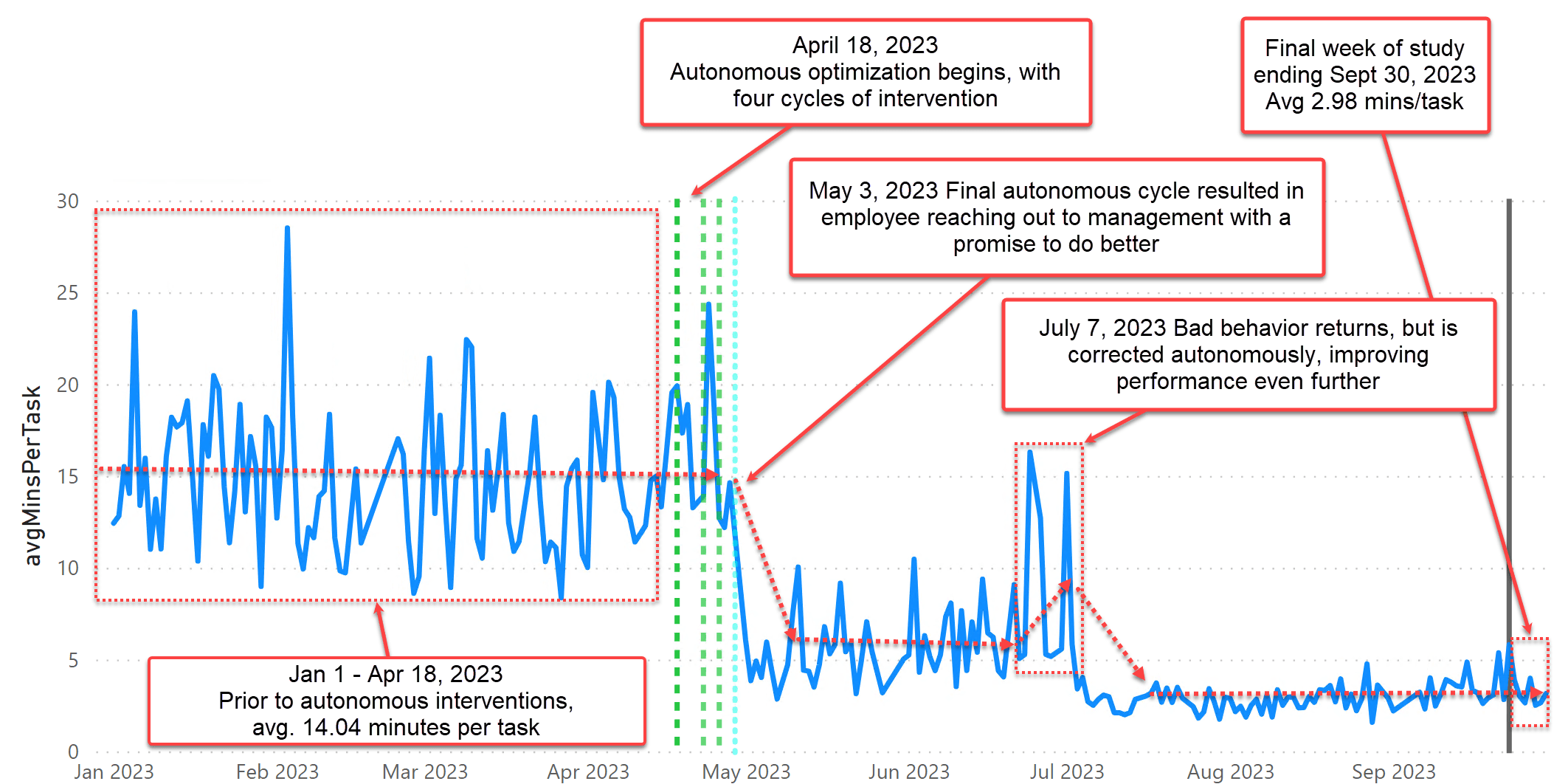OVERVIEW
In early 2023, Inspira’s autonomous management system underwent testing to evaluate its capacity for reducing the average task completion time.
The pilot test revealed an employee who would randomly ‘zone out’ throughout the day. The employee was coached by the autonomous system, resulting in a productivity improvement of 47.10%.
The test revealed a second employee who was frequently stopping her work to check her Facebook Messenger to chat with friends and family. Autonomous coaching resulted in an average task-completion time reduction from 14.05 minutes to 2.95 minutes, a 79% reduction in labor.
Today, autonomous AI coaches are assigned to every employee. The coaches are capable of a growing list of skills to help each employee become more successful, and in so doing, benefit the entire organization.

THE EXPERIMENT
In March of 2023, Inspira’s autonomous Investigation Engine identified two project managers as likely candidates for autonomous productivity optimization. The day-to-day responsibilities of the project managers were generally repetitive, and the homogenous nature of their duties made them suitable candidates to be included in Inspira’s first observable productivity experiment.
Inspira’s ‘Machine Suite‘ software was activated to autonomously monitor, asses and motivate the employee toward behaviour change. The employee had not been primed or prepared in any way, prior to the experiment.
The Machine Suite is productivity optimization software, which operates autonomously to monitor productivity, identify bottlenecks and coach users into more productive habits.
The Machine Suite has multiple ‘intervention’ systems that can communicate with employees and managers. In this experiment, the MOE system was employed (Metrics Optimization Engine).
MOE utilizes a method called confirmation of implementation intentions to motivate participants to double down on their previous commitments.
From January 1st through April 18th, 2023, the average time to complete tasks was measured.
On April 18th, the Machine Suite was activated. The Machine Suite almost immediately identified opportunities for improvement and began communicating with the employees. The chart below reveals the details for employee number 2.

There were initially four rounds of autonomous interventions with the employees, which were triggered when the ‘Recollection Engine’ detected a pattern of behavior that might be improved. The fourth round resulted in the employee reaching out to management with a promise to improve. This promise was suggested to the employee by the autonomous coaching system.
SUMMARY
Within two weeks of activating the autonomous coaching system, behavior measurably changed. Over the following four months of the experiment, the autonomous system continued to intervene as needed, and by the final week of the study, the average time to complete a task had been dramatically reduced.
The study was conducted in early 2023 and Inspira’s coaching technology has improved significantly since then.
The small sample size of this experiment does not allow the results to become a predictor of how the system might perform across a larger, more diverse participant sample. It does however illustrate that a fully autonomous system can be an effective aid in the optimization of productivity.
Today there are two classes of AI ‘coaches’.
The first is a personal AI assistant, whose job is to help the employee be successful in their job, and in their overall career. They represent the employee.
The second type of coach represents management. It is these coaches who might confront an employee for being repetitively late for work, letting the employee know that they have the authority to make promotion/demotion recommendations to the human management team.
